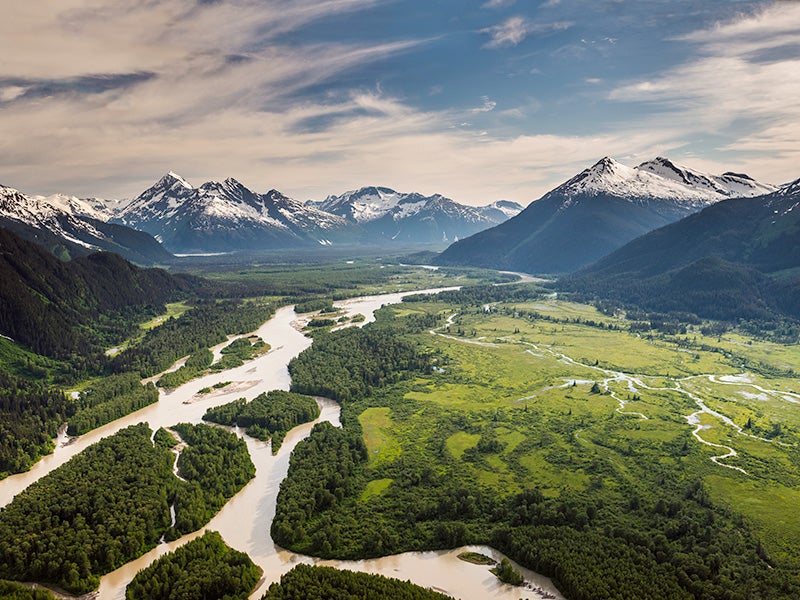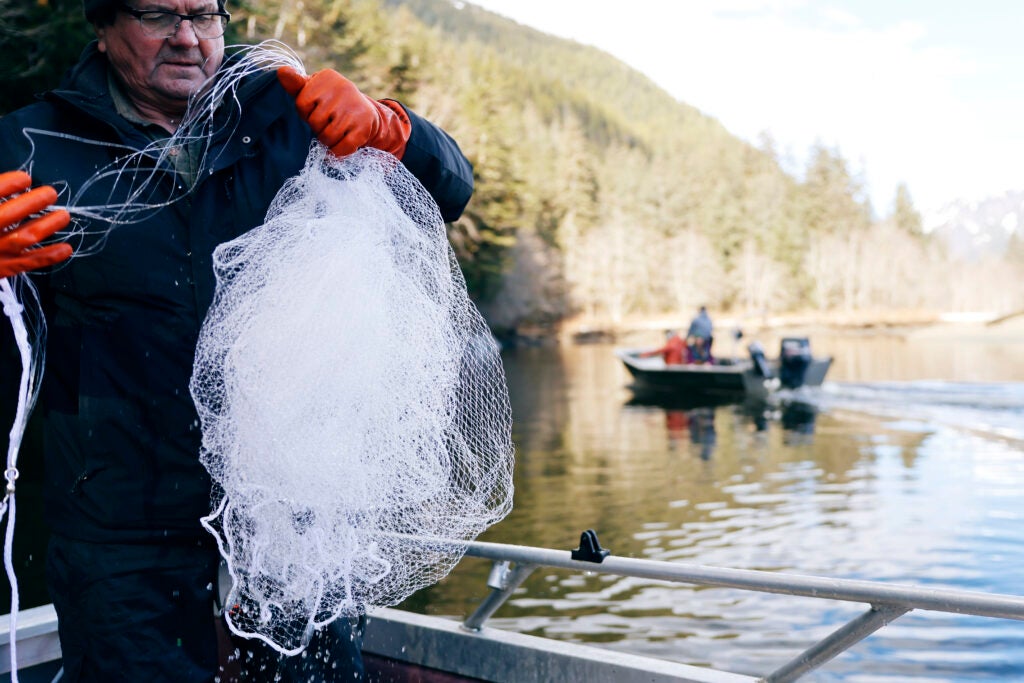Defending Watersheds in Southeast Alaska and British Columbia from Impacts of Mining
These watersheds are rich with wildlife, and their salmon harvests sustain local fishing enterprises and Alaska Native and First Nations communities. The threats of heavy metals pollution and catastrophic dam failures from large-scale mining will hang over the watersheds for centuries.
Clients
Regional Office / Program
Case Overview
The Taku, Stikine, and Unuk rivers flow across the Canada-United States border, from headwaters in the Coast Mountains of British Columbia through Southeast Alaska to the sea. These watersheds are some of the largest and most productive salmon habitats remaining in the world.
Alaska Native and First Nations peoples have harvested salmon and caribou from these watersheds for generations, and continue to rely on such harvests today. Commercial fishermen from Southeast Alaska also rely on these harvests, harvesting tens of millions of dollars worth of salmon from these three rivers annually. The watersheds collectively support hundreds of Alaskan workers and their families.
The watersheds are now endangered by the development of metals mines in British Columbia. The mines involve large-scale infrastructure development and generate immense quantities of tailings and mine wastes. Water treatment will be required in perpetuity. The threat of catastrophic dam failures will hang over the watersheds for centuries after the closure of the mines.
Two hard-rock mining projects are currently operating with three others fully permitted, two more in permitting and a growing number in the advanced exploration stage. These mines are already generating huge quantities of acid-producing and toxic waste products, posing the threat of polluting downstream waters with highly toxic heavy metals. That pollution could cause large and permanent declines in fish populations that Southeast Alaska Native communities have relied on for thousands of years.
Canada has an obligation under international law to prevent activities by companies within its jurisdiction from violating human rights and causing transboundary environmental damage.

Case Updates
Case page created on January 10, 2024.
